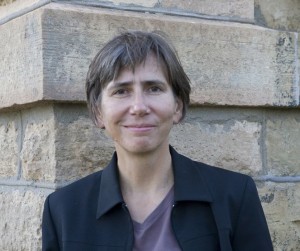The love for food runs deep throughout the Gustavus campus. The romanticization for home cooking, the good ol’ reliable chicken strip-and-fries combo, and the adornment for the STEAMeries sammies (can’t go wrong with the Cuban), unite the student body and faculty members. “Ooh, you know what sounds good right now…” is one of the Gusties’ go-to catchphrases.
This love is often unfortunately joined with a rushed approach. Scarfing down an apple while typing out a last-minute email, allotting only 10 minutes to finish lunch, or eating on the way to class, are some of the ways we neglect our so-called love for food.
Professor of philosophy Lisa Heldke ‘82 works to combat the collective carelessness we have toward the different foods we eat and how we eat them. Among the focal points of Heldke’s work are epistemology (the theory of knowledge) of food, cultural food colonialism, the role of parasites in our food, and democratized refrigeration.
Heldke earned her bachelor’s degree in philosophy and music degree on the Hill and later earned her PhD from Northwestern University. She has authored countless articles, published four books, and is an instructor at the John Dewey Kitchen Institute, a summer program at the University of Vermont that places philosophical inquiry in a culinary setting.

Given her expertise, and her pure appreciation for food, it’s fair to say that Heldke is passionate about her work. One mission she is actively pursuing is rethinking the typical classroom setting to invite more conversation and connection. For most, and especially for Heldke, that setting is the kitchen. “I’d love to do more thinking, teaching, and talking with other people and I believe the kitchen is the place to do so,” Heldke says.
Heldke is pursuing those goals by collaborating with different programs on campus, the main one being the Kitchen Cabinet. According to its online page, “The Kitchen Cabinet (KC) is a group of students and employees who informally advise the dining director about how the Dining Service can continue more deeply to serve the educational mission of the College.”
The Kitchen Cabinet brings students’ needs and Dining Services’ capabilities together, uniting through conversation. “This is a way to welcome, invite, eat, and enjoy with people,” Heldke says. “We invite people [including students] to share their recipes and to come into the kitchen and share their techniques.” This includes students instructing cooking staff about specifics such as how to properly prepare something in accordance with cultural guidelines, or how to avoid cross-contaminating utensils or cookware with potential food allergens. “Students shouldn’t settle,” Heldke says. “Food is not just fuel you’re taking part in.”
By having students advocate for themselves in these exchanges, they are showing signs of becoming more conscious eaters. Heldke also advises students to take that mindfulness a step further when they’re sitting down with their next plate. Chewing with care can lead to improved flavor palates, more curiosity about food’s origins and flavors, and greater enjoyment of food.“For one meal a day, eat mindfully. Eat silently, with attention, and see what you learn,” she says.
The robust Gustie appetite can often get in the way of deadlines and pressing assignments, but by absentmindedly plowing through a meal we collectively lose sight of our love of food. Slow, attentive eating and culinary self-advocacy are a few ways the Gustavus community can ignite further connection with themselves and with their peers.